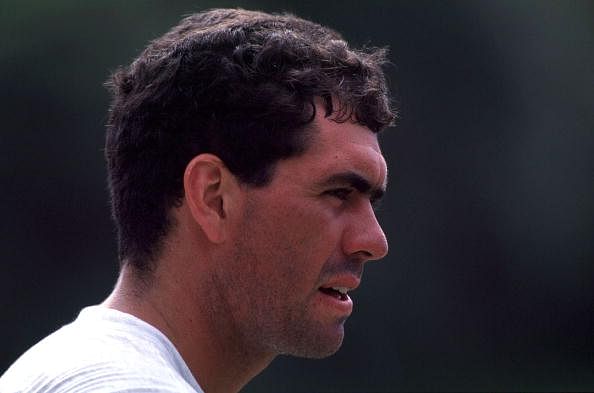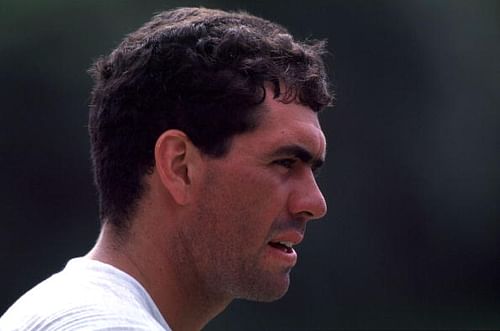
Hansie Cronje: A legendary career cut short by cricket's worst enemy

Hansie Cronje
The name Hansie Cronje often gets associated with one of the most dreadful terms in cricket- “match-fixing”. Every time there is a reference to Cronje, it brings to mind the episode that shook the entire game back in 2000 and that brought down curtains on one of the most controversial and successful careers the game has seen.
For someone who was as talented as him – both as a player and a captain – it certainly was not the best of endings. It was he, along with the tactically brilliant Bob Woolmer, who took the game to a different level and revolutionised it with his captaincy.
In the 1999 World Cup game against India, Cronje took the field with an ear-piece, through which he could get instructions from his coach. While, he was soon found out by the match referee and was ordered to remove it – and even though it was against the spirit of the game – it was one of the most imaginative tactic ever seen on a cricket field.
He was one of the most adventurous captains ever and formed a great partnership with Woolmer. With Woolmer being the one who wished to be behind-the-scene and letting his captain take centre-stage, Cronje was the aggressive captain who was always in the face of the opposition – sometimes at the umpires too, as was seen in the 1998 Adelaide Test against Australia, when he threw a stump at the umpires’ dressing room.
Cronje led his side to triumphs against every country except Australia. This included a series victory over India in India, which even the mighty Aussies under the great Steve Waugh could not achieve. His aggressive declarations paved the way for many South African wins, but his one-such declaration against England – when both captains decided to forfeit the second innings – was later found to be made under the influence of a bookie.
Under his captaincy, South Africa won 99 ODI’s and 27 Tests. He holds the record for winning most matches for South Africa in ODIs. Not only was he a brilliant and inspiring captain, he was also someone who always put his weight behind his players. He threatened to walk-out of an ODI against Australia, when “some objects” were thrown at Pat Symcox by the spectators.
He was equally good as a player with his hard-hitting batting and effective medium-pace bowling. And as was with most Proteas cricketers, he was a brilliant fielder as well.
He began his career in the post-apartheid era and became only the second South African to take five-wicket haul in ODIs. Also, he helped South Africa win their first Test after readmission with his maiden Test century. He even made Sachin Tendulkar his bunny, taking his wicket several times with his wicket-to-wicket bowling.
Cronje was also thought to be as someone who was very honest and his integrity was never ever questioned. His cricketing career was moving towards a legendary status and the Test series win in India in 2000 was the icing on the cake, as that broke India’s sequence of no Test series loss at home since 1987.
That was when the match-fixing saga broke out and the doubt about fixing in cricket, which was lingering in the minds of both the administrators and spectators, stood vindicated. But Cronje was never thought of to be someone who would conspire against the very game which brought him so many laurels.
When the Delhi police claimed that Cronje was involved in match-fixing, there were not many who doubted his honesty. Until Cronje himself confessed that he had not been “entirely honest” during a telephonic conversation with the-then Managing Director of South African cricket board, no one in the cricketing world really believed that Cronje could throw matches for money.
Inspite of all the negativity that surrounded him towards the end of his career and his life, Cronje was voted the 11th greatest South African in 2004.
Cronje, who had often saved his best for India, also blew the lid on match-fixing by Indian cricketers, and what started out to be a remarkable series win in one of the most testing conditions turned out to be one of the worst episodes in cricket.
The ghosts of match-fixing still refuses to die down in India, only that it has taken a new form in spot-fixing.